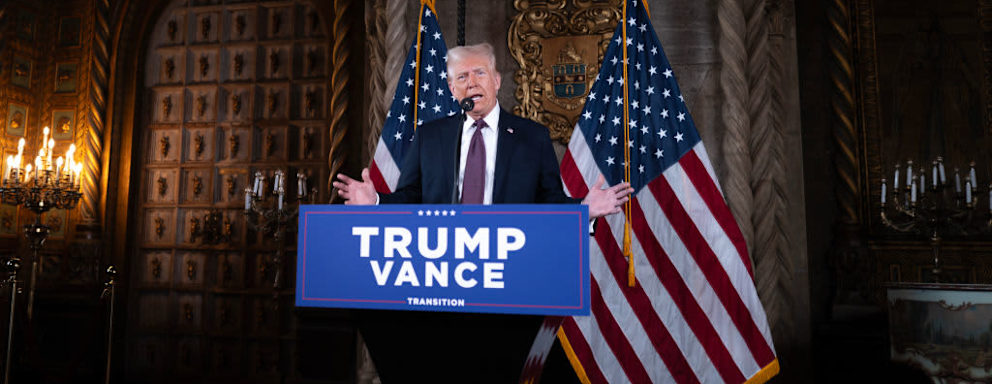International Students Urged to Return to Campus Before Potential Trump Travel Ban
 Credit: Scott Olson / Getty Images
Credit: Scott Olson / Getty Images- Universities are advising international students to return to campus before Donald Trump takes office Jan. 20.
- In his first term, President Trump issued an executive order limiting travel to the U.S. for people from certain countries.
- This time, the ban could include China and India, the two largest exporters of students to the U.S.
- Fears are largely speculative, but Trump has indicated his desire to institute a ban once he takes office.
Universities nationwide are bracing for a potential travel ban that could affect thousands of students and faculty.
Anticipating a ban similar to what President Donald Trump initiated in the first days of his first term, college leaders are advising international students to return to campus from winter break ahead of his inauguration on Jan. 20.
At the Massachusetts Institute of Technology, the administration is warning students that “new executive orders that may impact travel and visa processing may be implemented on or after that date,” adding that students should “assess their travel plans.”
Cornell University points out that the ban, “likely to go into effect soon after the inauguration,” may include countries Trump targeted in his first administration, including Kyrgyzstan, Nigeria, Myanmar, Sudan, Tanzania, Iran, Libya, North Korea, Syria, Venezuela, Yemen, and Somalia.
The University of Massachusetts Amherst and Wesleyan University have issued similar statements, as has the University of Southern California, where a quarter of its 47,000 students hail from foreign countries.
Harvard University offered a somewhat less direct approach, advising students who “share concerns about situations that would disrupt or delay” travel to be back in Cambridge, Massachusetts, before the Martin Luther King Jr. holiday, which happens to coincide with Inauguration Day.
Their fears are not unfounded. Soon after his inauguration in 2017, Trump signed an executive order banning travel from certain countries with large Muslim populations, which was struck down by federal courts, as was a second attempt at the ban.
His third attempt, known as Travel Ban 3.0, ultimately was upheld by the U.S. Supreme Court and went into effect in late 2017.
At the time, the order affected more than 17,000 students, Inside Higher Ed reported, as citizens of Iran, Iraq, Libya, Somalia, Sudan, Syria, and Yemen faced hurdles returning to the U.S. even if they held student visas.
College faculty and other scholars were impacted as well.
This time around, the list of countries could include China and India, notes Cornell’s statement. Those two nations account for 54% of all international students studying in the U.S.
In 2023-24, India surpassed China as the chief exporter of students to the U.S. While enrollment from China dropped by 4.2%, India’s representation increased by 23.3%.
Overall, international enrollment in the U.S. has been trending upward since the pandemic, reaching an all-time high of 1.13 million students last year.
Such progress could become a salve on the wound caused by the enrollment cliff demographers are projecting will hit in 2025. With fewer traditional-age undergraduates in the pipeline, international enrollments could help colleges boost their bottom line, especially since most international students pay full tuition.
Any travel ban threatens to derail this progress, of course, and Trump has already promised to renew his travel policies once he takes office.
At the same time, Trump has indicated his desire to award green cards to international students who graduate from U.S. colleges and universities, save for those deemed “communists, radical Islamists, Hamas supporters, or America haters.”
Perhaps this sentiment suggests any future bans under the Trump administration might be more lenient on international students, though any pertinent details remain matters of pure speculation.
Sarah Spreitzer, vice president and chief of staff for government relations at the American Council for Education (ACE), doesn’t expect the potential travel ban to have a major impact on students.
In a recent ACE podcast, Spreitzer noted that universities should advise students traveling to the U.S. after Jan. 20 to have the necessary paperwork in the event they’re detained. At this point, she concluded, anything more stringent isn’t warranted.
“I think it’s important that we don’t cause panic for our international students,” she said.